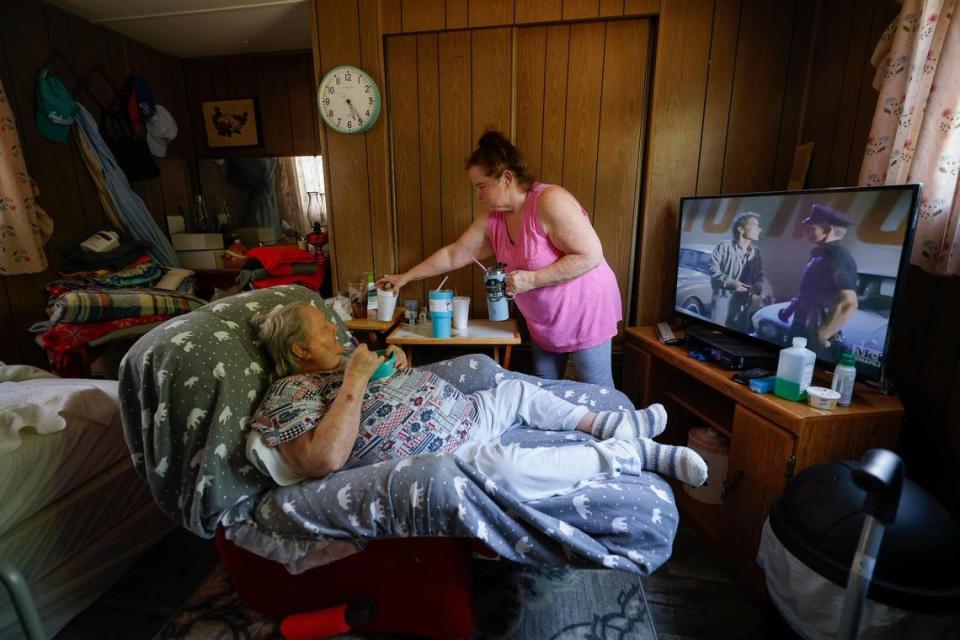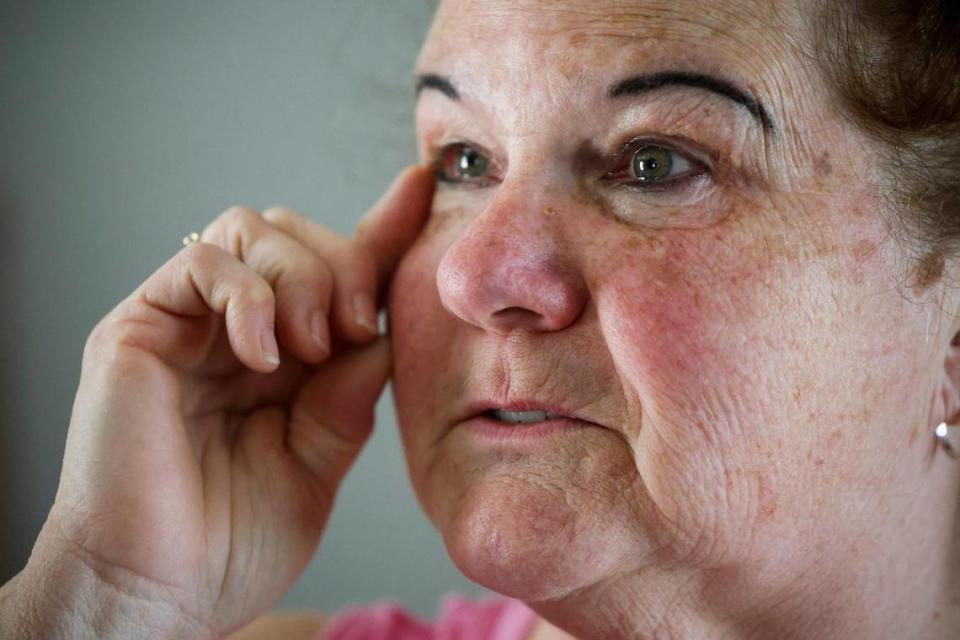‘Just blows my mind.’ Charlotte family forced to leave home of 50 years
Pushed out
Mobile home parks have been a reliable source of affordable housing in Charlotte for decades, offering prices well below nearby apartments or homes. But a confluence of factors, including rising land prices and an influx of investors looking to make money buying parks, threaten this way of life. New reporting and data analysis from The Charlotte Observer shows how in the middle of the city’s widening affordable housing crisis, this remaining refuge has come under siege.
Part 1: Mobile home parks in Charlotte under threat — for reasons all too familiar
Part 2: ‘Just blows my mind.’ Charlotte family forced to leave home of 50 years
Part 3: Developers are gobbling up mobile home parks. Can residents buy them first?
Part 4: Here’s who has been buying up mobile home parks in Charlotte
For the first time in a half-century, Stacy Sprinkle’s family soon won’t call Countrywoods Mobile Home Park home.
She’s watched the community in north Charlotte grow and change since her father bought the two-bedroom, one bathroom home in 1972 when she was 13. Since then, she’s lived here several times, most recently moving back in to care for her elderly mother.
The park off W.T. Harris Boulevard and Old Statesville Road was close-knit and affordable, Sprinkle said. Many families had lived there a decade or more.
“It was a lot of neighbors,” she said. “Everybody knew each other’s kids or friends.”
But in August, the park sold to Raleigh-based Countrywoods Community LLC, which is connected to an upstate New York firm that owns several mobile home parks.
First, the company raised lot rents, but initially reassured residents they wouldn’t have to move if they kept paying.
Then, the notices started arrived stating their month-to-month leases wouldn’t be renewed.
Everyone had to go.
Sprinkle says they’ve paid their lot rent faithfully, even as the most recent increase to $407 per month stretched their budget that’s mostly covered by her and her mother’s Social Security benefits.
The rest of the two dozen families at Countrywoods, who didn’t own their home like Sprinkle’s does but rented both their spot and their residences, also were told earlier this year their leases wouldn’t renewed.
Sprinkle, 63, has watched family after family move out, with an end-of-May deadline.
“I will probably be the last (to leave),” she said, surveying the now-empty park on a recent afternoon, where few remnants of life remain.
What’s left: Christmas lights hanging from empty homes. Children’s bikes out front. Potted plants baked by the sun.

Where there were once rows of rectangular houses there are now a combination of deserted homes yet to be demolished, freshly overturned soil where those already torn down once stood, and new, larger and more expensive manufactured homes that will replace them.
“It just blows my mind,” she said. “Before people rented here and it was affordable to us. Most of us don’t have a lot of money,” she said of Countrywoods’ residents.
“Then they move these new trailers in, and wow,” she said. “It’s something to see this after all these years.”
Representatives with KDM Development, the New York firm, did not respond to phone or emailed requests for comment.
Mobile home communities have become a target for investors and private equity firms as a significant opportunity to profit, experts say, leaving their low-income residents vulnerable to displacement.
A review by The Charlotte Observer of local property records shows some 20 parks — or about one-third of those in Mecklenburg County — have changed ownership in the last five years, including several that have been purchased by out-of-state companies and large investors.
‘Stress and tension’
Packing up a half-century of life has been a stressful endeavor, she said. Most of the family photos, showing generations of special occasions and everyday life, are already off the walls. Moving boxes are piled in the living room, where Sprinkle sleeps on the couch or an air mattress so her mother and son can take each of the bedrooms.
“It’s been rough,” she said. “It’s been a lot of stress and tension.”
Sprinkle mourns the improvements they’d painstakingly saved for that they won’t be able to keep — new floors in the kitchen and hallway, and repairs to the bathroom to be more accessible for her 82-year-old mother.
Even though the family owns their home outright, they can’t take it with them. Mobile homes built before 1976 can’t be relocated, according to the U.S. Department of Housing and Urban Development code that set construction and safety standards for manufactured housing.
Although residents often use the terms mobile, manufactured, or sometimes trailer homes somewhat interchangeably, those classifications matter.
Anything built after 1976 is a manufactured home and can be relocated. Sprinkle’s is not.
“It can’t be moved,” she said. “I wish; (there are) memories in it.”

Now Sprinkle is working to buy a neighboring manufactured home that a former Countrywoods resident had rented, rushing to get the permits and funds together to move it to a nearby park.
But it comes at a price.
It can cost between $5,000 to $10,000 to move the home and reestablish water, sewer and other services to make it livable. That will come from money Sprinkle was saving for a new car. She plans to stay until the very end of the month in her family’s home.
“I’m staying until the very last minute,” she said.
READ NEXT: Charlotte developer uses obscure NC law to take family land

